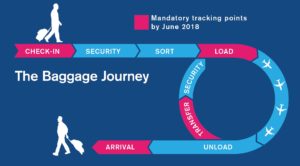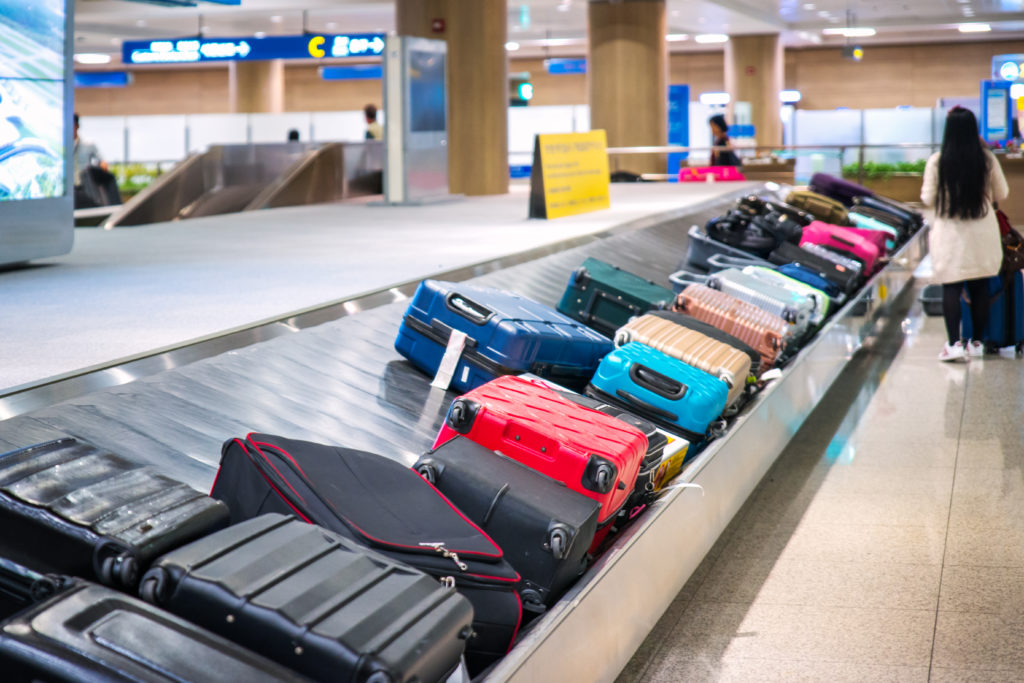 Magali Collot, project manager, end-to-end baggage (APCS), IATA, discusses current thinking around baggage tracking and the role RFID can play in reducing mishandling rates and enabling greater data sharing, ahead of her presentation at Passenger Terminal Conference 2019.
Magali Collot, project manager, end-to-end baggage (APCS), IATA, discusses current thinking around baggage tracking and the role RFID can play in reducing mishandling rates and enabling greater data sharing, ahead of her presentation at Passenger Terminal Conference 2019.
Describe your presentation?
IATA and RAIN RFID Alliance are working together to help airlines and airports use RAIN RFID technology to track and trace bags. In 2018, IATA updated the RFID standard “Recommended Practice 1740c – Radio Frequency Identification (RFID) Specifications for Interline Baggage” to reflect the latest developments in technology.
On Thursday 28th March at 10:35 during Day 3 of the Passenger Terminal CONFERENCE, IATA will cover what the current baggage tracking situation is, what passengers expect and where RFID fits in all of this. IATA will also share its 2019 RFID roadmap. RAIN RFID will focus more on the technology itself and showcase how it has worked in other industries and what it could bring to the aviation industry.
What exactly is RAIN RFID? How does it differ from plain, old, simple RFID?
The type of RFID that is used extensively in the aviation industry is passive Class 1 Gen 2 Ultra High Frequency (UHF), otherwise known or marketed as RAIN RFID. This type of RFID produces a very low energy signal when tracking bags throughout airport processes – without interfering with any aircraft systems. Additionally, the tag is ‘passive’ until it is ‘interrogated’ by a reader.
What are the current pain points regarding accurately tracking baggage?
With IATA’s Resolution 753 on baggage tracking now in effect, compliance will increase the accuracy of baggage handling and ease the process as the industry continues to grow with more travellers. Airlines are implementing baggage tracking, but implementing baggage tracking throughout an airline’s network is complex and takes time. It isn’t just a case of installing some readers – you have to take a good look at every installation point. These points are often airside, often in remote locations. An airline station manager, if there is one at the location, is not qualified to determine what needs to be installed. Of course, airports can undertake these installations but they also need to know the airlines’ requirements. Then there are the other stakeholders, such as ground handlers, who also have needs. Bring in technical challenges such as wi-fi connectivity and we can understand why tracking will take a few years to implement globally.

What is the best way to share baggage data between airlines, airports and travellers?
Baggage data should be shared in a standardised way using baggage messaging. Baggage messaging is the communication between airlines and airports that supports the transit of bags from origin to destination. With increasing bags and passengers comes a greater need to communicate and interpret this information.
New standards of baggage messaging are being implemented based on the IATA Airline Industry Data Model (AIDM), making it easier for airlines, airports and baggage handling vendors in the industry to understand and communicate baggage information with clarity.
There is an XML schema that supports messaging based on the AIDM and this is already being deployed by some airlines. Using this overcomes some of the challenges of legacy type B messaging.
If airlines want to give visibility of the bag’s journey to their passengers then they can also do this. Passengers should see a benefit through reduced mishandling and also through more product offerings from the airlines, such as push notifications about airlines’ applications.
What do you hope the audience will take away with them following your presentation?
RFID suffers from a number of myths. These centre around cost, ease of deployment, global standards and effectiveness. Following the presentation, the audience will know the reasons why IATA and RAIN RFID are embarking on making the bag digital and why RFID is the right technology to track bags.
Magali Collot, project manager, end-to-end baggage (APCS), IATA, will present ‘IATA and the RAIN RFID Alliance making the bag digital’ at this year’s Passenger Terminal CONFERENCE, which takes place during Passenger Terminal EXPO, 26, 27 and 28 March 2019, in London. Register here for your delegate pass.

